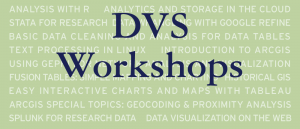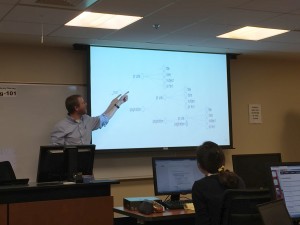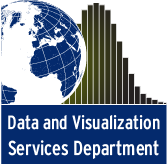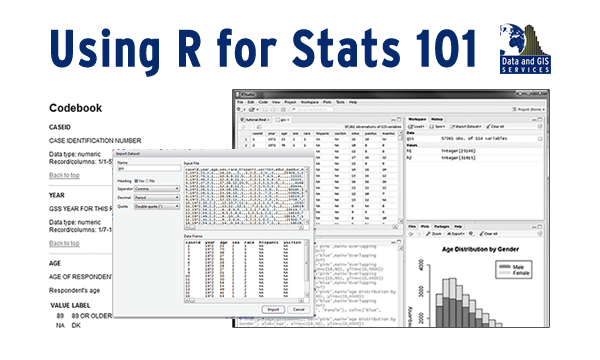On behalf of Duke Libraries and the Social Science Research Institute, I am happy to welcome Mara Sedlins to Duke. As the library and SSRI work to develop a rich set of data management, analysis, and archiving strategies for Duke researchers, Mara’s postdoctoral position provides a unique opportunity to work closely with researchers across campus to improve both training and workflows for data curation at Duke. – Joel Herndon, Head of Data and Visualization Services, Duke Libraries
 I am excited to join the Data and Visualization Services team this fall as a postdoctoral fellow in data curation for the social sciences (sponsored by CLIR and funded by the Alfred P. Sloan Foundation). For the next two years, I will be working with Duke Libraries and the Social Science Research Institute to develop best practices for managing a variety of research data in the social sciences.
I am excited to join the Data and Visualization Services team this fall as a postdoctoral fellow in data curation for the social sciences (sponsored by CLIR and funded by the Alfred P. Sloan Foundation). For the next two years, I will be working with Duke Libraries and the Social Science Research Institute to develop best practices for managing a variety of research data in the social sciences.
My research background is in social and personality psychology. I received my PhD at the University of Washington, where I worked to develop and validate a new measure of automatic social categorization – to what extent do people, automatically and without conscious awareness, sort faces into socially constructed categories like gender and race? The measure has been used in studies examining beliefs about human genetic variation and the racial labels people assign to multiracial celebrities like President Barack Obama.
While in Seattle, I was also involved in several projects at Microsoft Research assessing computer-supported cooperative work technologies, focusing on people’s preferences for different types of avatar representations, compared to video or audio-only conferencing. I also have experience working with data from a study of risk factors for intimate partner violence, managing a database of donors and volunteers for a historical archive, and organizing thousands of high-resolution images for a large-scale digital comic art restoration project.
I look forward to applying the insights gained from working on a diverse array of data-intensive projects to the problem of developing and promoting best practices for data management throughout the research lifecycle. I am particularly interested in questions such as:
- How can researchers write actionable data management plans that improve the quality of their research?
- What strategies can be used to organize and document data files during a project so that it’s easy to find and understand them later?
- What steps need to be taken so that data can be discovered and re-used effectively by other researchers?
These are just a few of the questions that are central to the rapidly evolving field of data curation for the sciences and beyond.









 The fall of 2014 marks the completion of the first five years of the libraries’
The fall of 2014 marks the completion of the first five years of the libraries’ 
 How do you support 57,860 online students
How do you support 57,860 online students